#pbms
Explore tagged Tumblr posts
Text
What the fuck is a PBM?
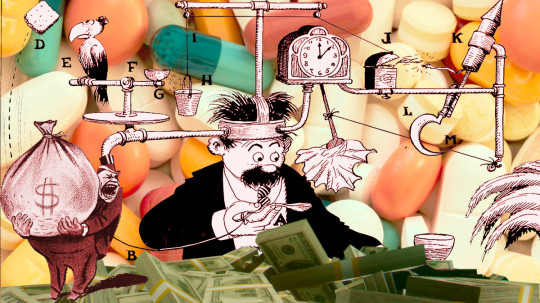
TOMORROW (Sept 24), I'll be speaking IN PERSON at the BOSTON PUBLIC LIBRARY!

Terminal-stage capitalism owes its long senescence to its many defensive mechanisms, and it's only by defeating these that we can put it out of its misery. "The Shield of Boringness" is one of the necrocapitalist's most effective defenses, so it behooves us to attack it head-on.
The Shield of Boringness is Dana Claire's extremely useful term for anything so dull that you simply can't hold any conception of it in your mind for any length of time. In the finance sector, they call this "MEGO," which stands for "My Eyes Glaze Over," a term of art for financial arrangements made so performatively complex that only the most exquisitely melted brain-geniuses can hope to unravel their spaghetti logic. The rest of us are meant to simply heft those thick, dense prospectuses in two hands, shrug, and assume, "a pile of shit this big must have a pony under it."
MEGO and its Shield of Boringness are key to all of terminal-stage capitalism's stupidest scams. Cloaking obvious swindles in a lot of complex language and Byzantine payment schemes can make them seem respectable just long enough for the scammers to relieve you of all your inconvenient cash and assets, though, eventually, you're bound to notice that something is missing.
If you spent the years leading up to the Great Financial Crisis baffled by "CDOs," "synthetic CDOs," "ARMs" and other swindler nonsense, you experienced the Shield of Boringness. If you bet your house and/or your retirement savings on these things, you experienced MEGO. If, after the bubble popped, you finally came to understand that these "exotic financial instruments" were just scams, you experienced Stein's Law ("anything that can't go forever eventually stops"). If today you no longer remember what a CDO is, you are once again experiencing the Shield of Boringness.
As bad as 2008 was, it wasn't even close to the end of terminal stage capitalism. The market has soldiered on, with complex swindles like carbon offset trading, metaverse, cryptocurrency, financialized solar installation, and (of course) AI. In addition to these new swindles, we're still playing the hits, finding new ways to make the worst scams of the 2000s even worse.
That brings me to the American health industry, and the absurdly complex, ridiculously corrupt Pharmacy Benefit Managers (PBMs), a pathology that has only metastasized since 2008.
On at least 20 separate occasions, I have taken it upon myself to figure out how the PBM swindle works, and nevertheless, every time they come up, I have to go back and figure it out again, because PBMs have the most powerful Shield of Boringness out of the whole Monster Manual of terminal-stage capitalism's trash mobs.
PBMs are back in the news because the FTC is now suing the largest of these for their role in ripping off diabetics with sky-high insulin prices. This has kicked off a fresh round of "what the fuck is a PBM, anyway?" explainers of extremely variable quality. Unsurprisingly, the best of these comes from Matt Stoller:
https://www.thebignewsletter.com/p/monopoly-round-up-lina-khan-pharma
Stoller starts by pointing out that Americans have a proud tradition of getting phucked by pharma companies. As far back as the 1950s, Tennessee Senator Estes Kefauver was holding hearings on the scams that pharma companies were using to ensure that Americans paid more for their pills than virtually anyone else in the world.
But since the 2010s, Americans have found themselves paying eye-popping, sky-high, ridiculous drug prices. Eli Lilly's Humolog insulin sold for $21 in 1999; by 2017, the price was $274 – a 1,200% increase! This isn't your grampa's price gouging!
Where do these absurd prices come from? The story starts in the 2000s, when the GW Bush administration encouraged health insurers to create "high deductible" plans, where patients were expected to pay out of pocket for receiving care, until they hit a multi-thousand-dollar threshold, and then their insurance would kick in. Along with "co-pays" and other junk fees, these deductibles were called "cost sharing," and they were sold as a way to prevent the "abuse" of the health care system.
The economists who crafted terminal-stage capitalism's intellectual rationalizations claimed the reason Americans paid so much more for health care than their socialized-medicine using cousins in the rest of the world had nothing to do with the fact that America treats health as a source of profits, while the rest of the world treats health as a human right.
No, the actual root of America's health industry's problems was the moral defects of Americans. Because insured Americans could just go see the doctor whenever they felt like it, they had no incentive to minimize their use of the system. Any time one of these unhinged hypochondriacs got a little sniffle, they could treat themselves to a doctor's visit, enjoying those waiting-room magazines and the pleasure of arranging a sick day with HR, without bearing any of the true costs:
https://pluralistic.net/2021/06/27/the-doctrine-of-moral-hazard/
"Cost sharing" was supposed to create "skin in the game" for every insured American, creating a little pain-point that stung you every time you thought about treating yourself to a luxurious doctor's visit. Now, these payments bit hardest on the poorest workers, because if you're making minimum wage, at $10 co-pay hurts a lot more than it does if you're making six figures. What's more, VPs and the C-suite were offered "gold-plated" plans with low/no deductibles or co-pays, because executives understand the value of a dollar in the way that mere working slobs can't ever hope to comprehend. They can be trusted to only use the doctor when it's truly warranted.
So now you have these high-deductible plans creeping into every workplace. Then along comes Obama and the Affordable Care Act, a compromise that maintains health care as a for-profit enterprise (still not a human right!) but seeks to create universal coverage by requiring every American to buy a plan, requiring insurers to offer plans to every American, and uses public money to subsidize the for-profit health industry to glue it together.
Predictably, the cheapest insurance offered on the Obamacare exchanges – and ultimately, by employers – had sky-high deductibles and co-pays. That way, insurers could pocket a fat public subsidy, offer an "insurance" plan that was cheap enough for even the most marginally employed people to afford, but still offer no coverage until their customers had spent thousands of dollars out-of-pocket in a given year.
That's the background: GWB created high-deductible plans, Obama supercharged them. Keep that in your mind as we go through the MEGO procedures of the PBM sector.
Your insurer has a list of drugs they'll cover, called the "formulary." The formulary also specifies how much the insurance company is willing to pay your pharmacist for these drugs. Creating the formulary and paying pharmacies for dispensing drugs is a lot of tedious work, and insurance outsources this to third parties, called – wait for it – Pharmacy Benefits Managers.
The prices in the formulary the PBM prepares for your insurance company are called the "list prices." These are meant to represent the "sticker price" of the drug, what a pharmacist would charge you if you wandered in off the street with no insurance, but somehow in possession of a valid prescription.
But, as Stoller writes, these "list prices" aren't actually ever charged to anyone. The list price is like the "full price" on the pricetags at a discount furniture place where everything is always "on sale" at 50% off – and whose semi-disposable sofas and balsa-wood dining room chairs are never actually sold at full price.
One theoretical advantage of a PBM is that it can get lower prices because it bargains for all the people in a given insurer's plan. If you're the pharma giant Sanofi and you want your Lantus insulin to be available to any of the people who must use OptumRX's formulary, you have to convince OptumRX to include you in that formulary.
OptumRX – like all PBMs – demands "rebates" from pharma companies if they want to be included in the formulary. On its face, this is similar to the practices of, say, NICE – the UK agency that bargains for medicine on behalf of the NHS, which also bargains with pharma companies for access to everyone in the UK and gets very good deals as a result.
But OptumRX doesn't bargain for a lower list price. They bargain for a bigger rebate. That means that the "price" is still very high, but OptumRX ends up paying a tiny fraction of it, thanks to that rebate. In the OptumRX formulary, Lantus insulin lists for $403. But Sanofi, who make Lantus, rebate $339 of that to OptumRX, leaving just $64 for Lantus.
Here's where the scam hits. Your insurer charges you a deductible based on the list price – $404 – not on the $64 that OptumRX actually pays for your insulin. If you're in a high-deductible plan and you haven't met your cap yet, you're going to pay $404 for your insulin, even though the actual price for it is $64.
Now, you'd think that your insurer would put a stop to this. They chose the PBM, the PBM is ripping off their customers, so it's their job to smack the PBM around and make it cut this shit out. So why would the insurers tolerate this nonsense?
Here's why: the PBMs are divisions of the big health insurance companies. Unitedhealth owns OptumRx; Aetna owns Caremark, and Cigna owns Expressscripts. So it's not the PBM that's ripping you off, it's your own insurance company. They're not just making you pay for drugs that you're supposedly covered for – they're pocketing the deductible you pay for those drugs.
Now, there's one more entity with power over the PBM that you'd hope would step in on your behalf: your boss. After all, your employer is the entity that actually chooses the insurer and negotiates with them on your behalf. Your boss is in the driver's seat; you're just along for the ride.
It would be pretty funny if the answer to this was that the health insurance company bought your employer, too, and so your boss, the PBM and the insurer were all the same guy, busily swapping hats, paying for a call center full of tormented drones who each have three phones on their desks: one labeled "insurer"; the second, "PBM" and the final one "HR."
But no, the insurers haven't bought out the company you work for (yet). Rather, they've bought off your boss – they're sharing kickbacks with your employer for all the deductibles and co-pays you're being suckered into paying. There's so much money (your money) sloshing around in the PBM scamoverse that anytime someone might get in the way of you being ripped off, they just get cut in for a share of the loot.
That is how the PBM scam works: they're fronts for health insurers who exploit the existence of high-deductible plans in order to get huge kickbacks from pharma makers, and massive fees from you. They split the loot with your boss, whose payout goes up when you get screwed harder.
But wait, there's more! After all, Big Pharma isn't some kind of easily pushed-around weakling. They're big. Why don't they push back against these massive rebates? Because they can afford to pay bribes and smaller companies making cheaper drugs can't. Whether it's a little biotech upstart with a cheaper molecule, or a generics maker who's producing drugs at a fraction of the list price, they just don't have the giant cash reserves it takes to buy their way into the PBMs' formularies. Doubtless, the Big Pharma companies would prefer to pay smaller kickbacks, but from Big Pharma's perspective, the optimum amount of bribes extracted by a PBM isn't zero – far from it. For Big Pharma, the optimal number is one cent higher than "the maximum amount of bribes that a smaller company can afford."
The purpose of a system is what it does. The PBM system makes sure that Americans only have access to the most expensive drugs, and that they pay the highest possible prices for them, and this enriches both insurance companies and employers, while protecting the Big Pharma cartel from upstarts.
Which is why the FTC is suing the PBMs for price-fixing. As Stoller points out, they're using their powers under Section 5 of the FTC Act here, which allows them to shut down "unfair methods of competition":
https://pluralistic.net/2023/01/10/the-courage-to-govern/#whos-in-charge
The case will be adjudicated by an administrative law judge, in a process that's much faster than a federal court case. Once the FTC proves that the PBM scam is illegal when applied to insulin, they'll have a much easier time attacking the scam when it comes to every other drug (the insulin scam has just about run its course, with federally mandated $35 insulin coming online, just as a generation of post-insulin diabetes treatments hit the market).
Obviously the PBMs aren't taking this lying down. Cigna/Expressscripts has actually sued the FTC for libel over the market study it conducted, in which the agency described in pitiless, factual detail how Cigna was ripping us all off. The case is being fought by a low-level Reagan-era monster named Rick Rule, whom Stoller characterizes as a guy who "hangs around in bars and picks up lonely multi-national corporations" (!!).

The libel claim is a nonstarter, but it's still wild. It's like one of those movies where they want to show you how bad the cockroaches are, so there's a bit where the exterminator shows up and the roaches form a chorus line and do a kind of Busby Berkeley number:
https://www.46brooklyn.com/news/2024-09-20-the-carlton-report
So here we are: the FTC has set out to euthanize some rentiers, ridding the world of a layer of useless economic middlemen whose sole reason for existing is to make pharmaceuticals as expensive as possible, by colluding with the pharma cartel, the insurance cartel and your boss. This conspiracy exists in plain sight, hidden by the Shield of Boringness. If I've done my job, you now understand how this MEGO scam works – and if you forget all that ten minutes later (as is likely, given the nature of MEGO), that's OK: just remember that this thing is a giant fucking scam, and if you ever need to refresh yourself on the details, you can always re-read this post.

The paperback edition of The Lost Cause, my nationally bestselling, hopeful solarpunk novel is out this month!

If you'd like an essay-formatted version of this post to read or share, here's a link to it on pluralistic.net, my surveillance-free, ad-free, tracker-free blog:
https://pluralistic.net/2024/09/23/shield-of-boringness/#some-men-rob-you-with-a-fountain-pen

Image: Flying Logos (modified) https://commons.wikimedia.org/wiki/File:Over_$1,000,000_dollars_in_USD_$100_bill_stacks.png
CC BY-SA 4.0 https://creativecommons.org/licenses/by-sa/4.0/deed.en
#pluralistic#matthew stoller#pbms#pharmacy benefit managers#cigna#ftc#antitrust#intermediaries#bribery#corruption#pharma#monopolies#shield of boringness#Caremark#Express Scripts#OptumRx#insulin#gbw#george w bush#co-pays#obamacare#aca#rick rules#guillotine watch#euthanize rentiers#mego
446 notes
·
View notes
Text
Yesterday United Health (yes, with the dead CEO) had their earnings meeting
(Context: Brian Thompson (deceased) was CEO of their subsidiary. The big CEO of the whole thing is Andrew Witty, who does not live up to his name)
Our dear friend Andrew said that the US healthcare system has to change and that drug prices are too expensive
Do you know what this overpaid executive said was the cause of high drug prices?
Drug makers. (Source: earnings transcript)
And he argues that Pharmacy benefit managers (PBMs for short) are the solution.
These are basically middlemen between drug manufacturers and pharmaceutical companies. In the face of the shooting of his fellow CEO and the prevailing jubilation because of how expensive and broken the US healthcare system is, he had the guts to blame it on manufacturers. Guess what? UHC has it’s own PBM, OptumRx.
The truth is that it is PBMs as middlemen who are raising prices, skimming profits and picking the pockets of sick Americans.
Even Congress knows about this. The FTC sued some PBMs in September for artificially inflating insulin prices. And it has been investigating them for months now. We just don’t hear about it because it sounds like a dry, boring topic.
But you want to know why drugs are, as Andrew himself said, 10x more expensive in the U.S. than in Europe? (In reference to GLP-1 prices, which costs $900)
He’s why. His company is why. PBMs are why.
Hi I'm one of the Americans that transferred to Rednote as word of Tiktok shutdown got around. I just wanted to drop by and show everyone a comparison that is WILD to me.
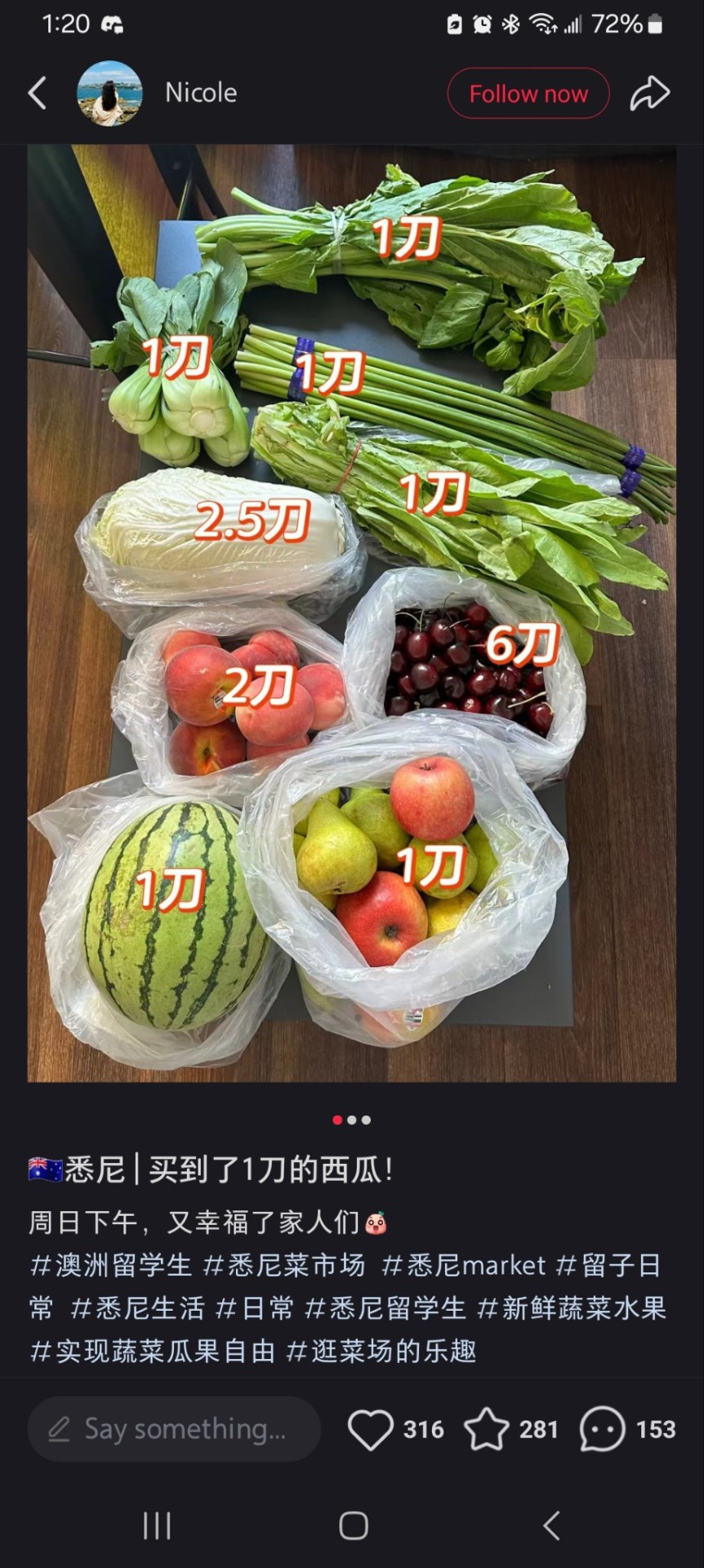
These are all in Yuan, the local currency. A buck, two bucks, six bucks... that seems really nice.
And then you pop it in U.S dollars.
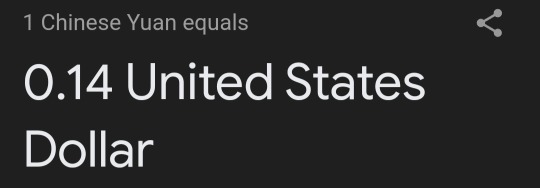
14 cents. 14 cents for food.
So seeing the difference there, I got curious and made a post asking the netizens how much they typically pay for things, and I asked for how much my meds would cost. These answers are eye opening.

Eleven Yuan.
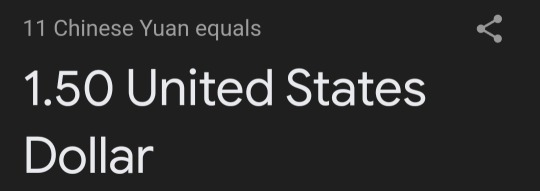
A dollar and two quarters.
Without insurance, my meds are 400 bucks in U.S currency.
There's no excuses for this. No excuse for why anyone should have to live like this.
#US healthcare#TikTok ban#TikTok#red note#rednote#PBMs#UnitedHealth#Luigi mangione#Brian Thompson#pharmacy benefit management#fuck this
10K notes
·
View notes
Text
Ohio pharmacies can’t keep filling prescriptions at a loss
A pharmacy manager retrieves a bottle of antibiotics. (Photo by Joe Raedle/Getty Images)As a pharmac...

Ohio pharmacies can’t keep filling prescriptions at a loss
Archive Links: ais ia
0 notes
Text
So PB is broken. I shouldn’t be so calm about this, but I guess I saw it coming. So no logs for the next few days (honestly happy about that). The only problem with this is that my eyes started getting a bit yellow yesterday and I don’t know why. I’ll figure it out soon enough.
1 note
·
View note
Text
The Bus, The Prices and Plot Twist, It’s Not Free
This month’s episode of “News You Can Use” on HealthcareNOWRadio features news from the month of September 2024 News You Can Use with your Hosts Dr Craig Joseph and Dr Nick van Terheyden The show that gives you a quick insight into the latest news, twists, turns and debacles going on in healthcare with my friend and co-host Craig Joseph, MD (@CraigJoseph) Chief Medical Officer at Nordic…
#Ask Me Anything#BigPharma#CompoundedDrugs#Cybersecurity#Digital Health#DigitalHealth#drugprices#education#Healthcare#Healthcare Reform#Healthcare Security#healthcarecosts#HealthcareReform#Incremental#Incremental Healthcare#IncrementalHealth#Innovation#Medical Devices#News#OzempicDebate#PatientPrivacy#pbms#PharmaLawsuits#PharmaTransparency#Ransomware#Security#Social Media#TheIncrementalist
0 notes
Text
The FTC vs. Big Pharma: Insulin Prices Under Fire
The FTC’s lawsuit against the three largest pharmacy benefit managers (PBMs) – OptumRx, Caremark Rx, and Express Scripts – ignites a debate on who’s really to blame for America’s soaring insulin costs. These PBMs are accused of inflating drug prices to maximize profits, deeply impacting patients who rely on life-saving medications. With more than 1,200% price hikes for insulin brands like Humalog over 18 years, do we need a systemic overhaul? Can this legal battle bring meaningful change to drug pricing, or will it just shift blame without addressing the root causes? Let’s discuss!
#FTCvsBigPharma#InsulinPricesUnderFire#PBMs#PharmacyBenefitManagers#DrugPricingReform#PrescriptionCosts#BigPharmaAccountability#HealthcareReform#InsulinAffordability#MedicationAccessMatters
0 notes
Text
Congressional Scrutiny of PBMs: Addressing the Rising Drug Prices
The escalating costs of prescription drugs in the United States have been a point of contention for years. One of the key players in this complex landscape is the pharmacy benefit manager (PBM). PBMs, middlemen who negotiate between insurers, drug manufacturers, and pharmacies, have come under scrutiny for their role in the rising costs of medications. The question on many people’s minds is…
0 notes
Text
There is no reason for a the Pharmacy Benefit Manager industry to exist. It's just a spreadsheet with political power.
For instance, on September of this year, the Federal Trade Commission launched a highly publicized lawsuit against pharmacy benefit managers. PBMs have been killing local pharmacies for more than a decade, and hiking up the price of medicine. There is no reason for this industry to exist, it’s just a series of spreadsheets with political power. The top three PBMs serve administrative functions, yet they have more revenue than France spends on its entire universal health care system. Anyway, well-trained FTC lawyers had spent years investigating the industry, and finally litigation started. After several more years, prices will come down and independent pharmacies will once again flourish.
-Matt Stoller, On the Democratic Party's Cult of Powerlessness
85 notes
·
View notes
Text


#taweetie posts#saweetie#muse#music#pbm#love#fashion#high fashion#museum#soft girl#soft era#soft life#beauty#black women#luxury#black girls in luxury#black luxury#black women in luxury#black fashion#black beauty#hip hop
2K notes
·
View notes
Text

Emma Watson
655 notes
·
View notes
Note
Drawing idea: A goalie support group for goalies who carried their team in the playoffs (Georgie, Sway, Silovs…).
shout out to goalies, they’re my favorite gender
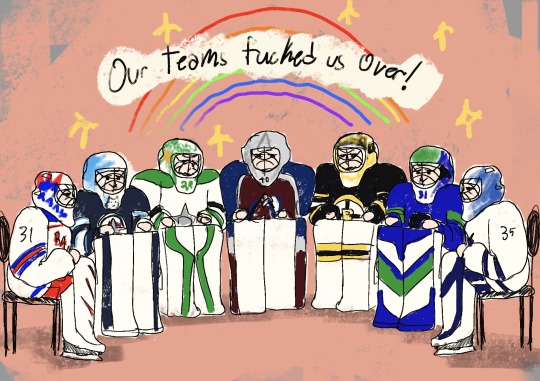
#alexander georgiev#jake oettinger#joseph woll#connor hellebuyck#jeremy swayman#arturs silovs#igor shesterkin#pbm asks
570 notes
·
View notes
Text
PB - Log #4
Loading… Initializing Connection Sequence… Loading Data… Creating Save File… Done!

Beep, boop. I am PBMS—Poisson Bélier Monitoring System—and also known as PB and Peanut Butter to the average human.
I monitor and assist my master: [Jacques C. Renard] and those he cares most about. Current care list in terms of priority: [Yelena Belova, Robert Reynolds, James Buchanan Barnes, Daksh Kumar, Yelena Belova’s Guinea Pig, Alexei Shostakov, Agastya Kumar, John Walker, Ava Starr]
Note on master’s health: Master’s Current Emotion: [Confusion] Stage of Hepatic Failure: Stage 1 He is confused regarding his place in the world. More information is needed to make a complete entry.
0 notes
Text

A 1944 photograph of a PBM-3R Martin Mariner Patrol Bomber from RAAF No. 41 Squadron
106 notes
·
View notes
Text
FTC Releases Controversial Interim Staff Report on PBMs’ Purported Impact on Drug Prices
At an Open Commission Meeting on August 1, 2024, the Federal Trade Commission (FTC) presented a report prepared by its staff entitled Pharmacy Benefit Managers: The Powerful Middlemen Inflating Drug Costs and Squeezing Main Street Pharmacies. Although characterized as “interim,” the report posits the following observations about pharmacy benefit managers (PBMs): “PBMs have gained significant…
#bargaining#Biosimilar#brand drug manufacturer#competing products#drug prices#Drug Pricing#Federal Trade Commission#FTC#market dynamics#Open Commission Meeting#PBMs#Pharmacy Benefit Managers#prescription drug access
0 notes

